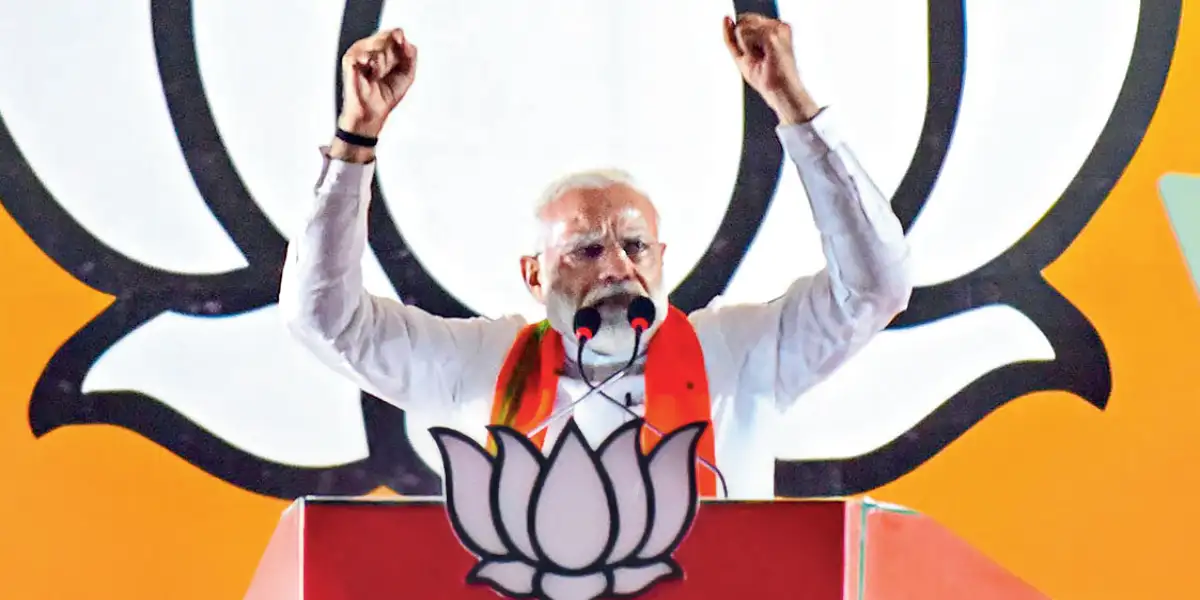New Delhi – In a recent interview with News18, Prime Minister Narendra Modi defended his hate speech where he targeted Muslims in a campaign speech. Modi said, “I neither mentioned Muslim nor Hindu”. He also mentioned, “The day I do ‘Hindu-Muslim’ I will not be eligible to stay in public life”. Meanwhile, a few days back in Banswara, Modi said, “When they were in government earlier, they had said that Muslims had the first right to the nation’s property. This means they will collect this property and distribute it to whom? To those who have more children. To infiltrators”.
Clarifying Controversial Remarks
During the interview, Modi expressed surprise at the interpretation of his remarks: “I am surprised, who has told you that when [it comes to the issue of having more children]… you add a reference to Muslims? Why are you doing this injustice to Muslims?” He further explained that poverty, not religion, correlates with higher birth rates, stating, “Whichever community it comes to, wherever there is poverty, there are more children there.”
Campaign Speech in Rajasthan
The controversy stems from a speech Modi delivered on April 21 in Banswara, Rajasthan. In this speech, Modi accused the Congress party of plotting to redistribute property, including Hindu women’s mangalsutras, to certain groups, implying this would benefit Muslims. He said, “When they were in government earlier, they had said that Muslims had the first right to the nation’s property. This means they will collect this property and distribute it to whom? To those who have more children. To infiltrators.” This claim was based on a misinterpretation of a 2006 statement by former Prime Minister Manmohan Singh, which did not suggest such a redistribution.
Party’s Campaign Tactics
The Bharatiya Janata Party (BJP) has faced criticism for releasing campaign videos that portray Muslims as part of a conspiracy to undermine Hindu communities. One such video was ordered to be taken down by the Election Commission.
Historical Context of Modi’s Rhetoric
Modi’s history of using divisive language dates back to his tenure as Gujarat’s Chief Minister during the 2002 riots. At that time, he referred to relief camps housing Muslims as “children-producing factories” and made derogatory remarks about their family sizes.
International and Domestic Criticism
Modi’s recent comments have attracted criticism both domestically and internationally. The New York Times highlighted the contrast between Modi’s international image as a leader and his domestic rhetoric targeting Muslims. Concerns about population growth among Muslims were echoed in a ‘working paper’ from the Economic Advisory Council, which pointed to demographic changes over the decades.
Political and Legal Implications
Analysts suggest that Modi’s backtracking could be a strategic move to mitigate electoral damage and maintain his image. The Election Commission and the Supreme Court have faced pressure to act against Modi’s inflammatory speeches, with petitions demanding legal action.
Conclusion
Despite Modi’s denials, evidence suggests that his speeches have specifically targeted Muslims, exacerbating communal tensions. The Election Commission and judiciary are urged to scrutinize these statements and take appropriate action to uphold democratic principles and communal harmony

Leave a Reply